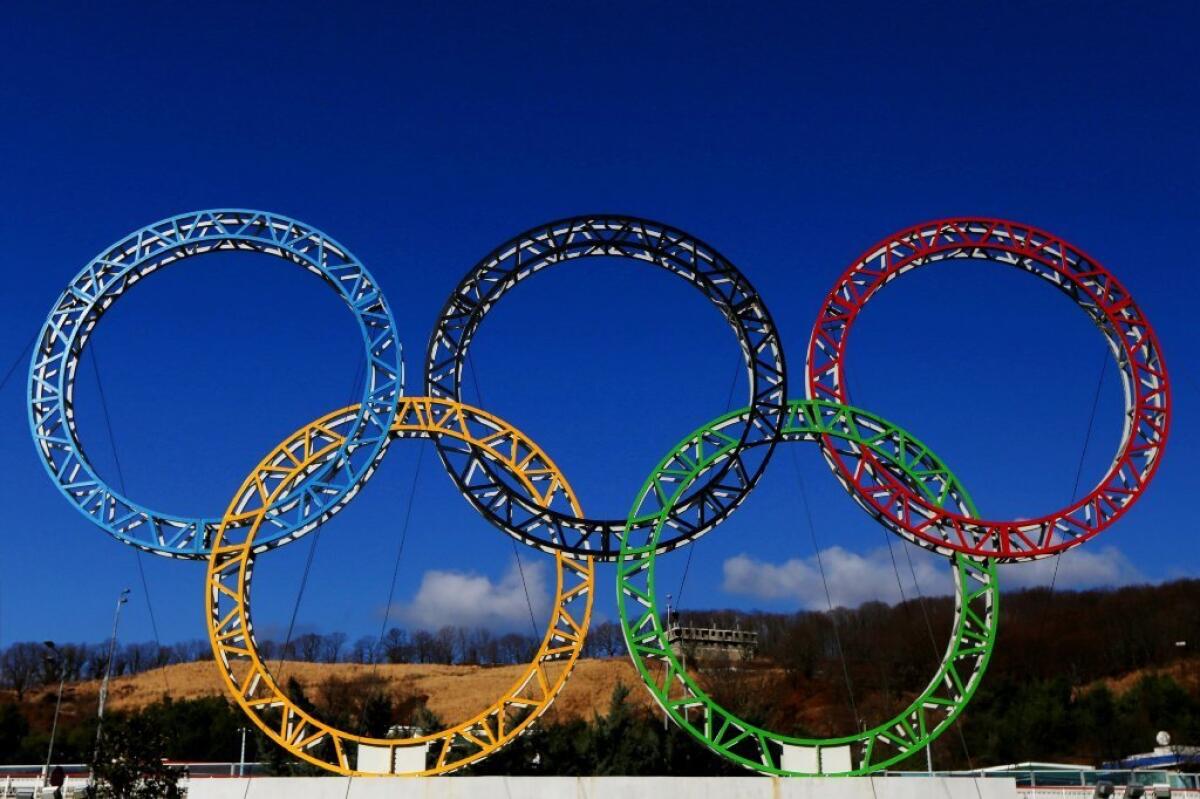All the reasons we still need the Olympics: Uhhh, can’t think of any

- Share via
As the controversies over the Sochi Winter Games pile up, it’s getting harder and harder to remember why the world continues its love affair with the Olympics. That’s not a jab at Russia. It’s a bigger question about whether the Games, summer or winter, provide the benefits that they (at least partly) used to, let alone whether this is truly some grand exercise in international understanding.
I was once as avid as everyone else, totaling up the number of medals the United States won against the evil Soviet empire, as though it proved anything. When we prevailed, my friends and I thrilled to what a great country this was; in the sports where the Soviet Union racked up a disproportionate number of golds, we’d say, “Well, sure, their communist government pays for them to train; our athletes are the true amateurs.” (Actually, that was an accurate assessment.)
This was supposed to be one of the reasons for holding the modern Olympics in the first place, at least as its founder Pierre de Coubertin envisioned it: to cast a spotlight on the amateur athlete. That vision went kaput in the late 1980s, after years of slow relaxation of the professionalism rules.
ide to Jesse Owens’ masterful performance in the 1936 Berlin Games, but the proof that black people
What about the other elements that are supposed to make the Olympics a wondrous event, or at least one worth holding?
- The Games are supposed to promote international peace.
- They are a boon in prestige and economy for the host city.
- They encourage the greatest in athleticism by providing a world stage.
- At least, it is great TV entertainment.
We can eliminate the first one right away. The Olympics never prevented international conflict and at times have been used, via boycotts, as pawns to further it. As I noted in a blog post on Monday, we can point with pride to Jesse Owens’ masterful performance in the 1936 Berlin Games, but the proof that black people were the equal of anyone didn’t curb the Holocaust or keep World War II from occurring.
The Games used to bring a wealth of tourism and other dollars into host cities, and they still do. But the costs of putting on ever more elaborate events, coupled with increased security and other expenses, have changed the equation. Analysts now say that host cities routinely underestimate the costs and that there is no real evidence that hosting the Games is of financial benefit.
Similarly, as we reach — or already have reached — the outer limits of human performance, the Games have encouraged cheating, doping and other problematic and sometimes dangerous behaviors, such as eating disorders among those lithe little gymnasts. Injury from extreme training and performance haunts the athletes, and even when everything is aboveboard, there’s a need to admit that the breaking of records has more to do with technology — better equipment that might, for example, cut down a fraction on the drag of wind or water — than with stronger, more amazing human physiques.
Meanwhile, the Games still make for great watching, if your idea of entertainment is endless commercials with an occasional moment of sports wedged in between.
The competition of great athletes leads to occasional moments of extraordinary human accomplishment. It keeps alive our ability to gasp with wonder. But that aspect has become a more minor part of the Games as the more noxious elements have grown. There are still plenty of international stages for athletic competition, where we can marvel at the participants’ strength and talent. Are we perhaps making a mistake by clinging to this one?
ALSO:
The ‘affluenza’ debate comes to California
A plea to hunter Corey Knowlton: Don’t shoot endangered black rhino
Should police face federal charges in Kelly Thomas’ death? An editorial board discussion.
More to Read
A cure for the common opinion
Get thought-provoking perspectives with our weekly newsletter.
You may occasionally receive promotional content from the Los Angeles Times.










